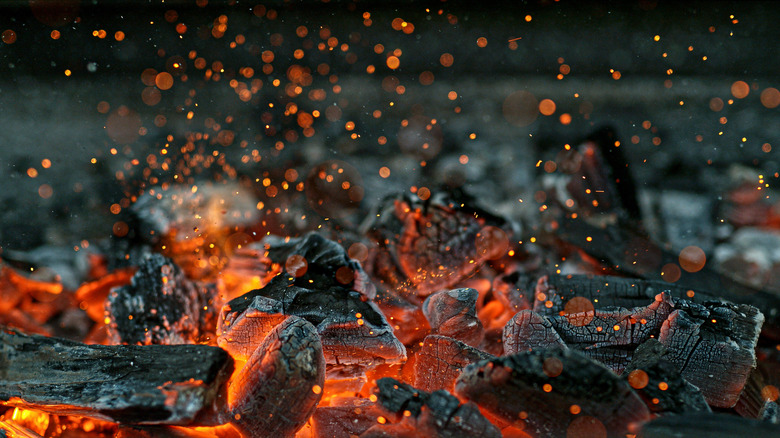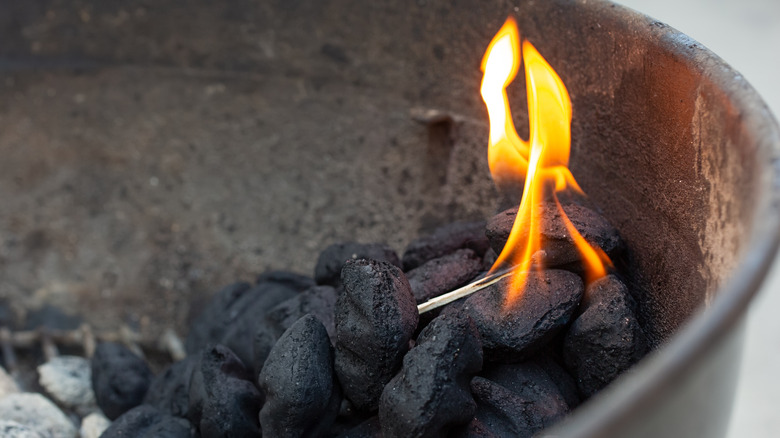The Safest Way To Put Out A Charcoal Grill
Charcoal cooking's smoke and occasional flare-ups can create delectable flavors, elevating dishes in an unparalleled manner. (For proof, check out this incredible black sea bass!) Even acclaimed grill-master Bobby Flay has stated his preference for embers over gas, as he appreciates the flavor charcoal imparts.
Yet, there's more hassle for charcoal's improved taste when compared to a gas grill — namely igniting and safely putting out the charcoal. For some, the last step presents a hurdle: we know simply throwing hot coals away is dangerous, but what's the soundest method to kill the heat?
According to the Hearth, Patio and Barbeque Association (HPBA), the best way to put out charcoal after grilling is to simply allow it to burn out and turn to ash, cooling for at least 48 hours. During cooling, the lid must be closed and all vents shut, and it's best to remove the grill rack for convenience. Once the ashes are cold, it's time to wrap everything in aluminum foil and dispose of them separately from other flammable sources (like that mostly empty bottle of lighter fluid or yesterday's newspaper). Make sure your trash receptacle is also made from a non-ignitable material.
While this may seem like a lot of steps, it's necessary to take every precaution to guarantee no perpetual coals will flair up. But is there an easier, quicker way to safely dispose of charcoals after your BBQ?
A quicker way to safely dispose of charcoal
As the method recommended by the pros at HPBA takes a minimum of two days, it's not the best option for every situation. So what should you do if you're grilling on the go?
Unlike a gas grill, oxygen access is important to keeping charcoal lit. (This is why you should leave the lid on while cooking on a charcoal grill, as removing it can adversely affect the flames.) If you want your charcoal grill to extinguish faster, make sure you cut off oxygen access as soon as possible, closing the lid and the vents. To further expedite the cooling process, you can wrap hot coals in aluminum foil and douse them in water. The foil will prevent superheated steam from rising and diminish ash from spreading everywhere. (You can also pour water directly into the partially cooled coals, according to Kingsford, but exercise caution and be prepared for said ash and steam.) Such a process also allows for suffocation of coals in a public park or other location without requiring you to camp out for two days sans grill. Kingsford explains that this method also allows you to save larger, partially burned coals for future cookouts — simply spray them with water and allow to dry fully before storing.
Following these simple steps ensures a straightforward clean-up and optimal safety. Charcoal cooking opens convivial experiences — there's nothing quite like sharing a flame-cooked meal with friends — so don't let disposal woes stop you from your best BBQ.

